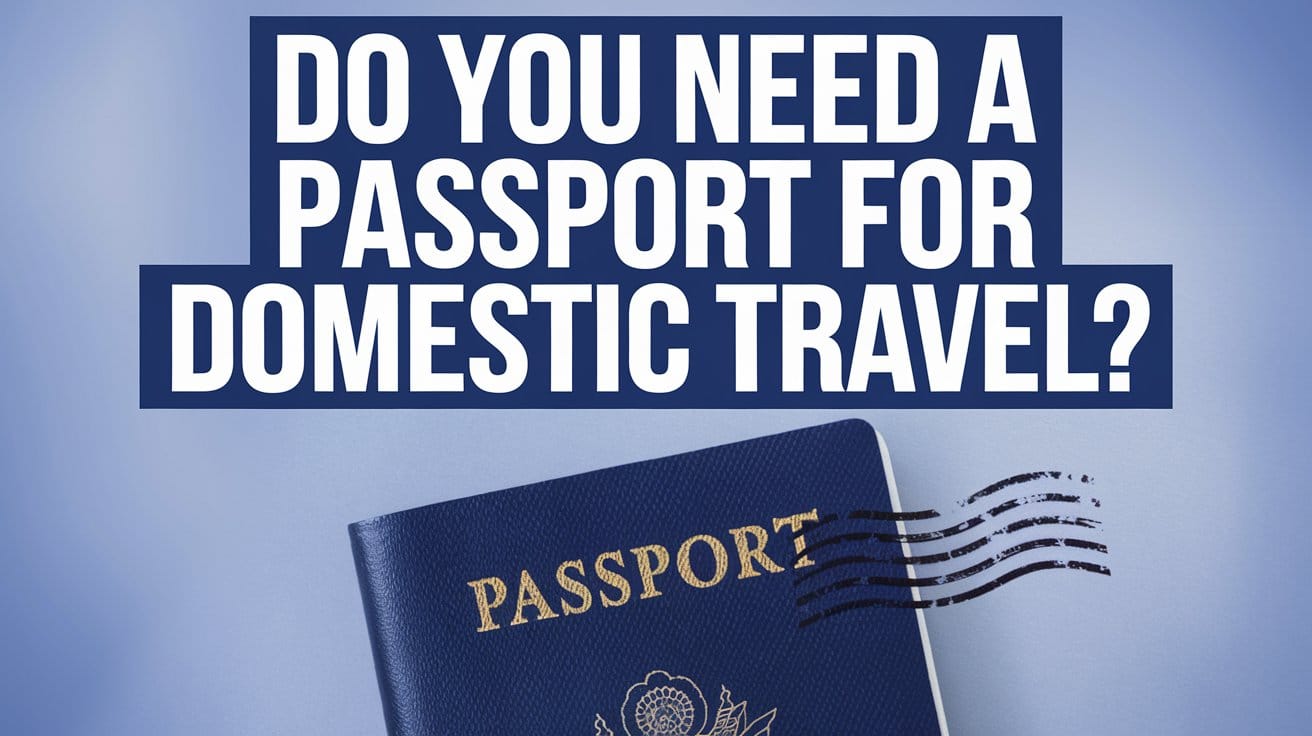Physical Address
304 North Cardinal St.
Dorchester Center, MA 02124
Physical Address
304 North Cardinal St.
Dorchester Center, MA 02124

Traveling within the United States comes with a host of conveniences, one of which is typically not needing a passport. However, with evolving identification requirements, travelers often find themselves asking, Do you need a passport for domestic travel? This blog explores everything you need to know about domestic travel identification, the role of passports, and how new regulations may affect your plans.
When traveling domestically within the United States, most travelers use state-issued identification, such as a driver’s license or ID card, to board flights or access certain secure areas. For years, this form of identification has been sufficient for domestic air travel, answering the question, Do you need a passport for domestic travel? with a simple “no.”
However, with the introduction of the REAL ID Act, things have started to shift. This federal law, implemented by the Department of Homeland Security, requires stricter standards for state-issued IDs to be used for air travel within the U.S. If your state-issued ID does not meet REAL ID standards, you may need to consider alternative identification options, such as a passport.
The REAL ID Act, passed in 2005, was designed to improve security by establishing minimum standards for the issuance of driver’s licenses and identification cards. As of May 7, 2025, all air travelers aged 18 and older will need a REAL ID-compliant form of identification to fly domestically.
But how does this connect to the question, Do you need a passport for domestic travel? If your current state ID isn’t REAL ID-compliant, then yes, a passport may serve as an acceptable alternative for domestic flights.
While passports are not the standard requirement for domestic travel, there are certain scenarios where they might be necessary:
Answering the query, Do you need a passport for domestic travel? becomes highly situational, but in these cases, it’s a useful backup.
Preparing for the REAL ID deadline is straightforward but requires some advance planning. Here’s what you need to do:
Even if a passport isn’t required for domestic travel, having one offers numerous benefits:
For frequent travelers, carrying a passport answers the question, Do you need a passport for domestic travel? with an easy “not always, but it’s better to have one.”
If you arrive at the airport without any form of identification, the Transportation Security Administration (TSA) may still allow you to board your flight. However, this is subject to additional security screening and a thorough verification process. In such cases, having a passport as a backup can make your travel experience much smoother.
This is another instance where the question, Do you need a passport for domestic travel? becomes relevant.
In summary, the short answer to the question, Do you need a passport for domestic travel? is no—most domestic travelers can rely on state-issued IDs that meet REAL ID standards. However, with upcoming changes to identification requirements and unexpected travel scenarios, having a passport is a smart choice.
Stay informed about identification requirements, plan ahead, and ensure you’re prepared for your next trip, whether it’s domestic or international. By understanding the role of passports in domestic travel, you’ll navigate future trips with ease and confidence.